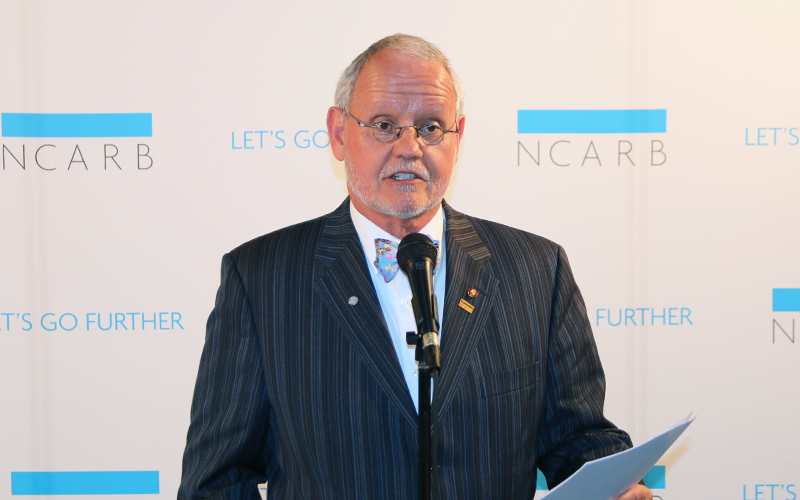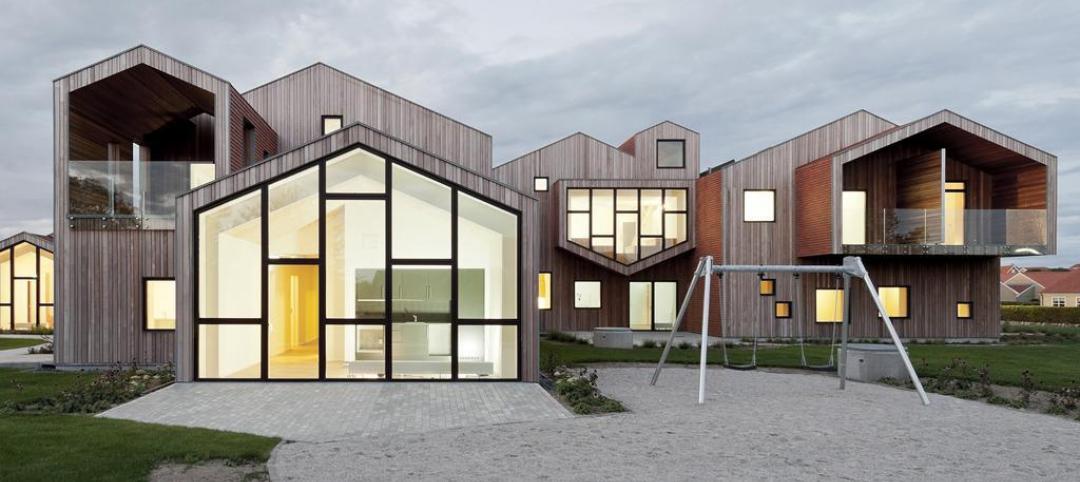A record-high number of candidates—37,178 at the end of 2014—were actively working toward an architect license required by the 54 state and jurisdiction licensing boards across the country.
It is common for candidates to be described, in the press or by many jurisdictions, as “intern-architects” or “architects in training,” or by some other nomenclature that might confer a false level of expertise or legal status.
The National Council of Architectural Regulation Boards (NCARB) wants to change that. Following the recommendations of a Future Title Task Force it formed last year, NCARB is embarking on an initiative that would “sunset” the term “intern” for those who are on a training or testing path to become architects.
NCARB is taking steps to erase “intern” from its internal lexicon, according to CEO Michael Armstrong. It plans to remove the word from its communications and correspondences. As an example, someone registered for the Architect Registration Examination “is an ARE candidate,” he said.
NCARB officials made this announcement during the American Institute of Architects’ (AIA) Convention 2015 Expo in Atlanta last week.
This debate isn’t new. “This issue has been fraught with controversy,” said Dale McKinney, FAIA, NCARB’s President. “We know that in the last several years, concerns have been raised regarding the credibility of the term ‘intern.’”
That’s not surprising, given the sheer number of architect candidates out there. In its “NCARB By The Numbers” report, which it will formally release in July, the Council estimates that nearly 10,000 new candidates had started on the path to licensure in 2014, 4% more than the previous year. The number of candidates who had completed the Architect Registration Exam was up 17% to 3,719.
The Task Force, chaired by McKinney’s immediate predecessor, Blake Dunn, considered several factors, particularly the regulatory impacts of extending the title “architect” beyond the licensed community. The Task Force recommended that:
• The role of regulation should be restricted to the title “architect,” which should be applied only to licensed individuals;
• Any other title held by those pursuing a license does not need to be regulated.
• NCARB should discontinue the use of the work intern, intern-architect, “or any other regulatory ‘title’ described those pursing licensure.”
(In April, NCARB’s board of directors voted unanimously to accept the Task Force report, which also determined that the term “architect emeritus” is acceptable because those people described as such, while they may not be practicing, still have obtained their license.)
NCARB is taking steps to erase “intern” from its internal lexicon, according to CEO Michael Armstrong. It plans to remove the word from its communications and correspondences. As an example, someone registered for the Architect Registration Examination “is an ARE candidate,” he said. “A person recording experience hours is a Record holder.” The Council is renaming its Internship + Education Directorate with the new title Experience + Education Department, or E2. And it is likely that its Intern Development Program—which the Council recently streamlined and overhauled—will be renamed.
Dennis Ward, AIA, who becomes the Council’s president on June 21, pointed out that 30 jurisdictions or licensing boards currently reference one or more titles that include the word intern or “architect in training.”
With its announcements, NCARB, said Armstrong, is asserting “our role as an advisory organization. We’re putting down a leadership marker.” But he and McKinney were quick to note that proposals to change the Council’s Model Law or regulations would need to be presented by delegates of the state licensing boards. The earliest such proposals could be presented for comment would be next Spring, and for a vote of the Membership at the Council’s Annual Business Meeting scheduled for Seattle in June 2016.
During its press conference at the AIA Expo, NCARB stated that U.S. licensing boards reported 107,581 licensed architects at the end of 2014, representing the third consecutive year of increased growth in the profession.
Related Stories
Codes and Standards | Feb 12, 2015
ASHRAE, USGBC, IES consider biomass requirements in green building standard
The proposal would add biomass to approved renewables.
Codes and Standards | Feb 12, 2015
New Appraisal Institute form aids in analysis of green commercial building features
The Institute’s Commercial Green and Energy Efficient Addendum offers a communication tool that lenders can use as part of the scope of work.
Office Buildings | Feb 12, 2015
Is Houston headed for an office glut?
More than 13 million sf could be completed this year, adding to this metro’s double-digit vacancy woes.
Modular Building | Feb 12, 2015
New shipping container complex begins construction in Albuquerque
The Green Jeans Farmery already has a hydroponic farm component courtesy of owner and entrepreneur Roy Solomon.
Transit Facilities | Feb 12, 2015
Gensler proposes network of cycle highways in London’s unused underground
Unused tube lines would host pedestrian paths, cycle routes, cultural spaces, and retail outlets.
Healthcare Facilities | Feb 11, 2015
Primer: Using 'parallel estimating' to pinpoint costs on healthcare construction projects
As pressure increases to understand capital cost prior to the first spade touching dirt, more healthcare owners are turning to advanced estimating processes, like parallel estimating, to improve understanding of exposure, writes CBRE Healthcare's Andrew Sumner.
Transportation & Parking Facilities | Feb 11, 2015
11 of the nation’s best ‘Complete Streets’ policies of 2014
Austin, Texas, and Troy, N.Y., are among the cities with the strongest safe streets policies, according to a new report.
Sponsored | Roofing | Feb 11, 2015
New school blends with local architecture using Petersen metal roof
Perkins Eastman in Stamford, Conn., designed the school to emphasize and integrate the International Baccalaureate curriculum throughout.
Mixed-Use | Feb 11, 2015
Developer plans to turn Eero Saarinen's Bell Labs HQ into New Urbanist town center
Designed by Eero Saarinen in the late 1950s, the two-million-sf, steel-and-glass building was one of the best-funded and successful corporate research laboratories in the world.
Architects | Feb 11, 2015
Shortlist for 2015 Mies van der Rohe Award announced
Copenhagen, Berlin, and Rotterdam are the cities where most of the shortlisted works have been built.
















